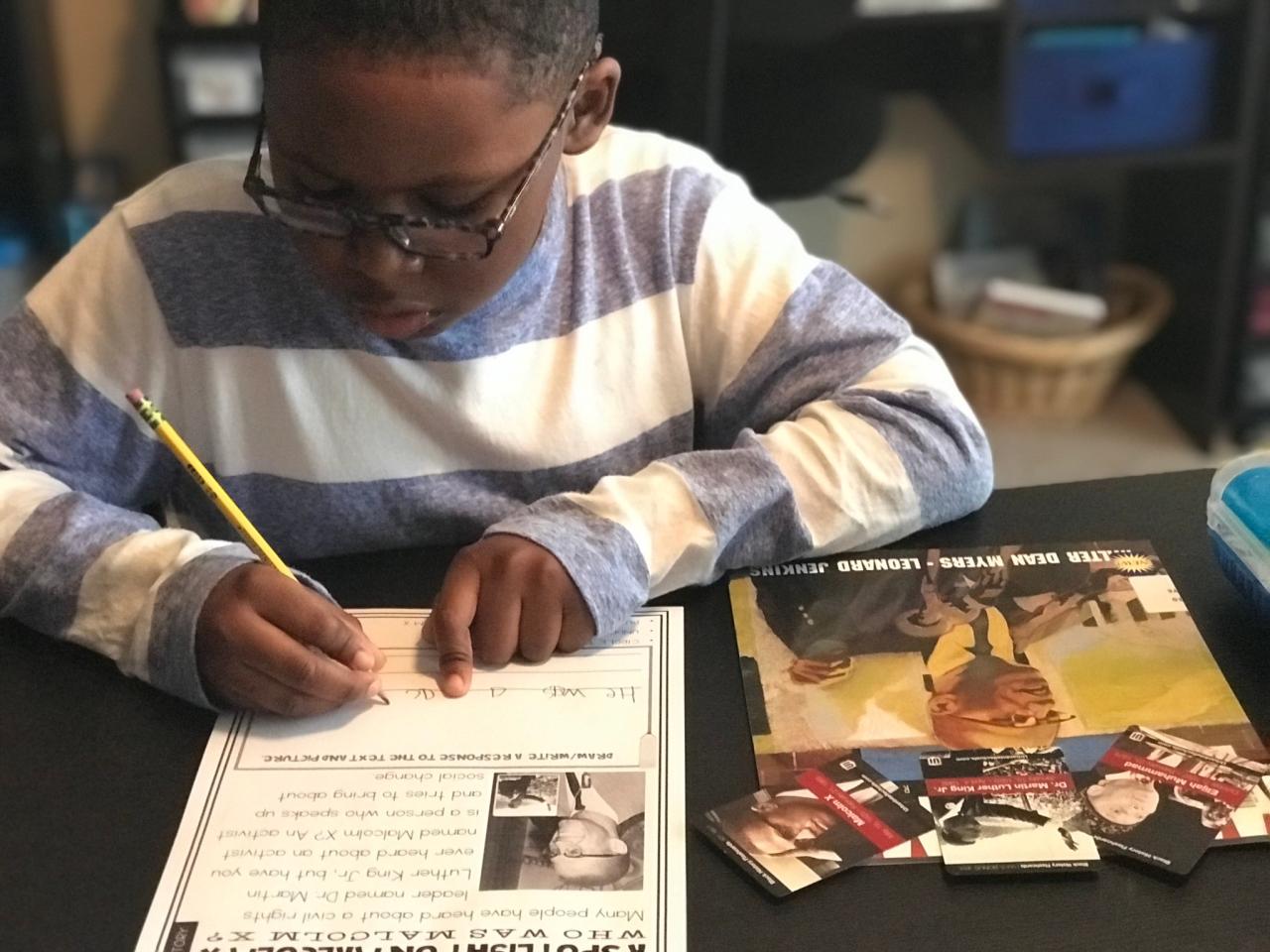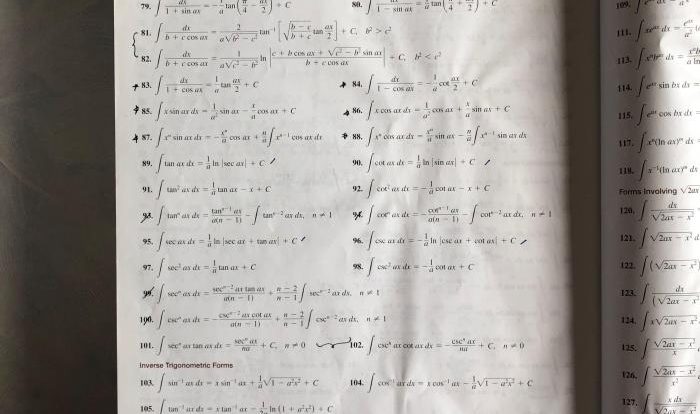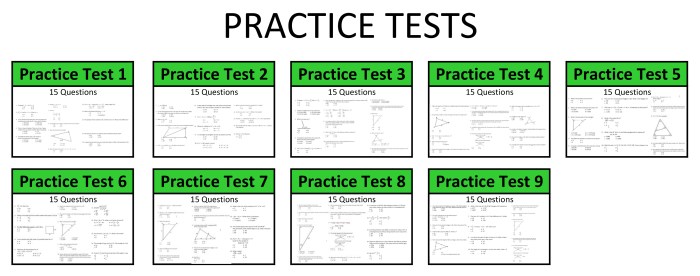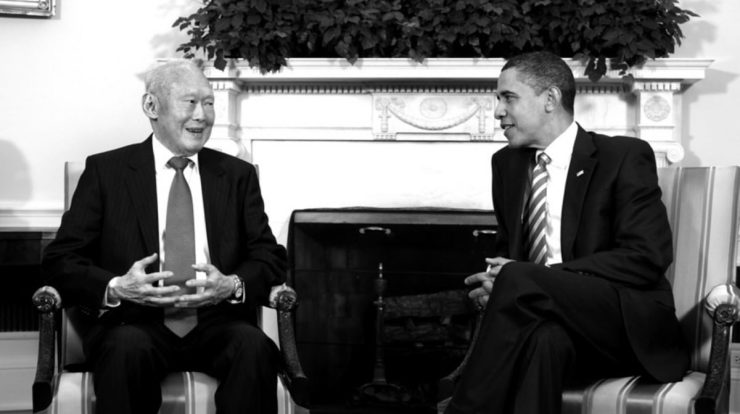A Homemade Education by Malcolm X embarks on an enthralling journey, unveiling the transformative power of self-education and self-reliance. Malcolm X’s relentless pursuit of knowledge, fueled by his passion for reading and critical thinking, shaped his worldview and empowered him as a leader and activist.
From his humble beginnings to his profound influence on the civil rights movement, Malcolm X’s educational journey serves as an inspiration for anyone seeking self-improvement and social change. This narrative delves into the subjects and topics he studied, the books and authors that influenced his thinking, and the enduring legacy of his educational philosophy.
Introduction
Malcolm X’s autobiography recounts his journey from a troubled youth to a prominent civil rights leader. A key theme throughout the narrative is the concept of “a homemade education.” This refers to Malcolm X’s self-directed learning and personal growth outside of traditional educational institutions.
For Malcolm X, self-education and self-reliance were essential for personal empowerment and social change. He believed that by acquiring knowledge and developing critical thinking skills, individuals could overcome the limitations imposed by their circumstances and challenge societal norms.
The Importance of Self-Education, A homemade education by malcolm x
Malcolm X’s “homemade education” began in prison. While incarcerated, he spent countless hours reading and studying various subjects, including history, philosophy, and literature. This voracious appetite for knowledge transformed his life, giving him a new perspective on the world and himself.
- Reading expanded Malcolm X’s knowledge and understanding of the world.
- It helped him develop critical thinking skills and question prevailing ideologies.
- Through reading, he discovered new ideas and perspectives that challenged his previous beliefs.
The Importance of Self-Reliance
Malcolm X also emphasized the importance of self-reliance. He believed that individuals should take responsibility for their own education and personal growth, rather than relying solely on external sources.
- Malcolm X encouraged people to seek knowledge and enlightenment beyond formal schooling.
- He emphasized the value of self-directed learning and personal initiative.
- He believed that individuals have the potential to educate themselves and become agents of change.
Malcolm X’s Educational Journey
Malcolm X’s early life was marked by poverty and limited formal education. He dropped out of school at the age of 15 and spent the next several years engaged in petty crime and hustling.
Passion for Reading and Knowledge
Despite his lack of formal education, Malcolm X developed a passion for reading and knowledge. He spent countless hours in the library, immersing himself in books on history, philosophy, and religion. His voracious reading fueled his desire for knowledge and ignited his intellectual growth.
Libraries and Other Resources
Libraries played a pivotal role in Malcolm X’s self-education. He found refuge and inspiration within their walls, where he had access to a vast collection of books and resources. He also sought out mentorship from intellectuals and activists, who further nurtured his intellectual curiosity.
The Content of Malcolm X’s Homemade Education
Malcolm X’s homemade education encompassed a wide range of subjects and topics, from history and literature to philosophy and religion. He was particularly drawn to books that challenged the status quo and exposed the injustices faced by Black Americans.
The Influence of Books and Authors
One of the most significant influences on Malcolm X’s thinking was the autobiography of Frederick Douglass. Douglass’s account of his life as a slave and his eventual escape to freedom inspired Malcolm X to fight for the rights of his people.
Malcolm X also read the works of Marcus Garvey, W.E.B. Du Bois, and other Black intellectuals who advocated for Black self-determination.
The Shaping of Malcolm X’s Worldview
Malcolm X’s education played a pivotal role in shaping his worldview. He came to believe that Black people were victims of systemic racism and that they had a right to self-defense. Malcolm X also developed a strong sense of Black pride and identity, which he believed was essential for Black liberation.
The Impact of Malcolm X’s Homemade Education

Malcolm X’s self-education was a transformative force that propelled him into becoming a powerful leader and activist. His relentless pursuit of knowledge empowered him with the critical thinking skills and persuasive eloquence that made him an influential voice in the civil rights movement.
Malcolm X’s Influence on the Civil Rights Movement
Malcolm X’s ideas and teachings had a profound impact on the civil rights movement. He advocated for black self-reliance, armed self-defense, and pan-Africanism, challenging the prevailing nonviolent approach. While his views were sometimes controversial, they ignited a sense of urgency and empowerment within the African American community.
- Malcolm X’s call for black self-defense inspired the creation of armed self-defense groups, such as the Deacons for Defense and Justice.
- His emphasis on black self-reliance led to the establishment of black-owned businesses and community institutions.
- His advocacy for pan-Africanism fostered a sense of solidarity among African Americans and people of African descent worldwide.
Malcolm X’s Educational Philosophy: A Homemade Education By Malcolm X
Malcolm X believed that education was essential for personal empowerment and social change. He emphasized the importance of critical thinking, self-determination, and the acquisition of knowledge in the struggle for freedom.
Critical Thinking
Malcolm X believed that critical thinking was essential for understanding the world and making informed decisions. He encouraged his followers to question authority, challenge assumptions, and seek out multiple perspectives. He argued that true education went beyond memorizing facts and regurgitating information; it required the ability to analyze, synthesize, and evaluate information in order to form independent judgments.
Self-Determination
Malcolm X also believed that education was essential for self-determination. He argued that people could not be truly free until they had the knowledge and skills to make their own decisions and control their own lives. He encouraged his followers to take responsibility for their own education and to seek out opportunities for learning and growth.
The Importance of Knowledge
Finally, Malcolm X believed that knowledge was essential in the struggle for freedom. He argued that knowledge was power and that the more people knew, the better equipped they would be to fight for their rights and achieve their goals.
He encouraged his followers to read widely, study history, and learn about the world around them.
Quick FAQs
What was the significance of Malcolm X’s homemade education?
Malcolm X’s homemade education empowered him with knowledge and critical thinking skills, enabling him to become a powerful voice for social justice and a leader in the civil rights movement.
How did Malcolm X develop his passion for reading and knowledge?
Malcolm X’s passion for reading and knowledge was ignited during his incarceration, where he spent countless hours in the prison library, voraciously consuming books on history, philosophy, and religion.
What were the key subjects and topics that Malcolm X studied?
Malcolm X’s self-education encompassed a wide range of subjects, including history, literature, philosophy, religion, and political science.
How did Malcolm X’s education shape his worldview and political beliefs?
Malcolm X’s education shaped his worldview by providing him with a deep understanding of the history of oppression and the importance of self-determination. It also influenced his political beliefs, leading him to advocate for Black nationalism and Pan-Africanism.





